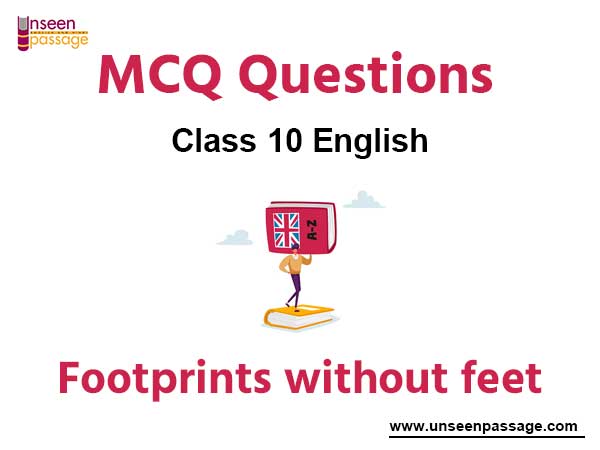The Ball Poem MCQ Class 10 English
Please refer to Chapter 3 The Ball Poem MCQ Class 10 English with answers below. These multiple-choice questions have been prepared based on the latest NCERT book for Class 10 English. Students should refer to MCQ Questions for Class 10 English with Answers to score more marks in Grade 10 English exams. Students should read the chapter The Ball Poem and then attempt the following objective questions.
MCQ Questions Class 10 English Chapter 3 The Ball Poem
The The Ball Poem MCQ Class 10 English provided below covers all important topics given in this chapter. These MCQs will help you to properly prepare for exams.
Answer the following questions by choosing the correct option.
Question. Where was the boy staring down?
a. The sea
b. The harbour
c. The ocean
d. The lake
Answer
B
Question. What comes to the boy’s mind, when he looks at the ball?
a. His parents
b. His friends
c. His young days
d. All of these
Answer
C
Question. Why is money called external?
a. Because money is earned through hard work
b. Because money can replace the lost things but not the happiness
c. Because money is made through an artificial way
d. Because money should be spent wisely
Answer
B
Question. The boy stands ____________ staring at the ball.
a. still
b. trembling
c. both of these
d. none of these
Answer
C
Question. People generally comfort the boy by saying:
a. “You should be careful with your things.”
b. “There are other balls.”
c. “Go home and ask your parents to buy a new ball.”
d. None of these
Answer
B
Question. The ball went into the:
a. pool
b. lake
c. harbour
d. well
Answer
C
Question. Identify the poetic device used in ‘and no one buys a ball back.’
a. Metaphor
b. Simile
c. Alliteration
d. Anaphora
Answer
C
Question. What does the boy stare at?
a. His parents
b. The ball which has fallen in the water
c. The poet
d. The people around him
Answer
B
Question. Why does the poet decide not to console the boy?
a. Because the poet is busy
b. Because the poet is indifferent
c. Because it will be of no use
d. Because the poet is happy
Answer
C
Question. What does ‘in the world of possessions’ mean?
a. Love
b. Lust
c. Materialistic things
d. None of these
Answer
C
Read the following extracts carefully and answer the questions that follow by choosing the correct option.
He is learning, well behind his desperate eyes,
The epistemology of loss, how to stand up
Knowing what every man must one day know
And most know many days, how to stand up.
Question. What is the boy learning?
a. That losing things is normal
b. That we should not be attached with anything
c. To cope up with the loss
d. The value of money
Answer
B
Question. Boy’s eyes look:
a. frustrated
b. sleepy
c. happy
d. desperate
Answer
D
Question. Who do you mean by ‘epistemology of loss’?
a. To cry over the loss
b. To overcome with the loss
c. To understand the nature of loss
d. None of these
Answer
C
Question. The boy is going to know the universal truth that:
a. almost all men lose something
b. they have to compromise with their loss
c. both of these
d. none of these
Answer
C
Question. Which word from the stanza means ‘hopelessness’?
a. Desperate
b. Epistemology
c. Loss
d. Learning
Answer
A
Read the extracts below and answer the questions that follow:
People will take
Balls, balls will be lost always, little boy.
And no one buys a ball back. Money is external.
Question. The boy is trying to learn:
a. the reality of life.
b. losing things.
c. the materialistic world.
d. the miseries of life.
Answer
A
Question. According to the poet:
a. money can buy everything.
b. money cannot buy everything.
c. money is the most powerful.
d. money must not be wasted.
Answer
B
Question. Everyone must learn in his/her life the harsh truth of standing up:
a. against the wrongs.
b. with his/her relatives.
c. against the odd miseries of life.
d. All of these.
Answer
C
Question. The poet personifies the ball as:
a. the worldly things
b. the relationships
c. Both a. and b.
d. Neither a. nor b.
Answer
C
Question. The boy is learning against the sense of:
a. relationships.
b. his belongings.
c. playing carefully.
d. lost things.
Answer
D



